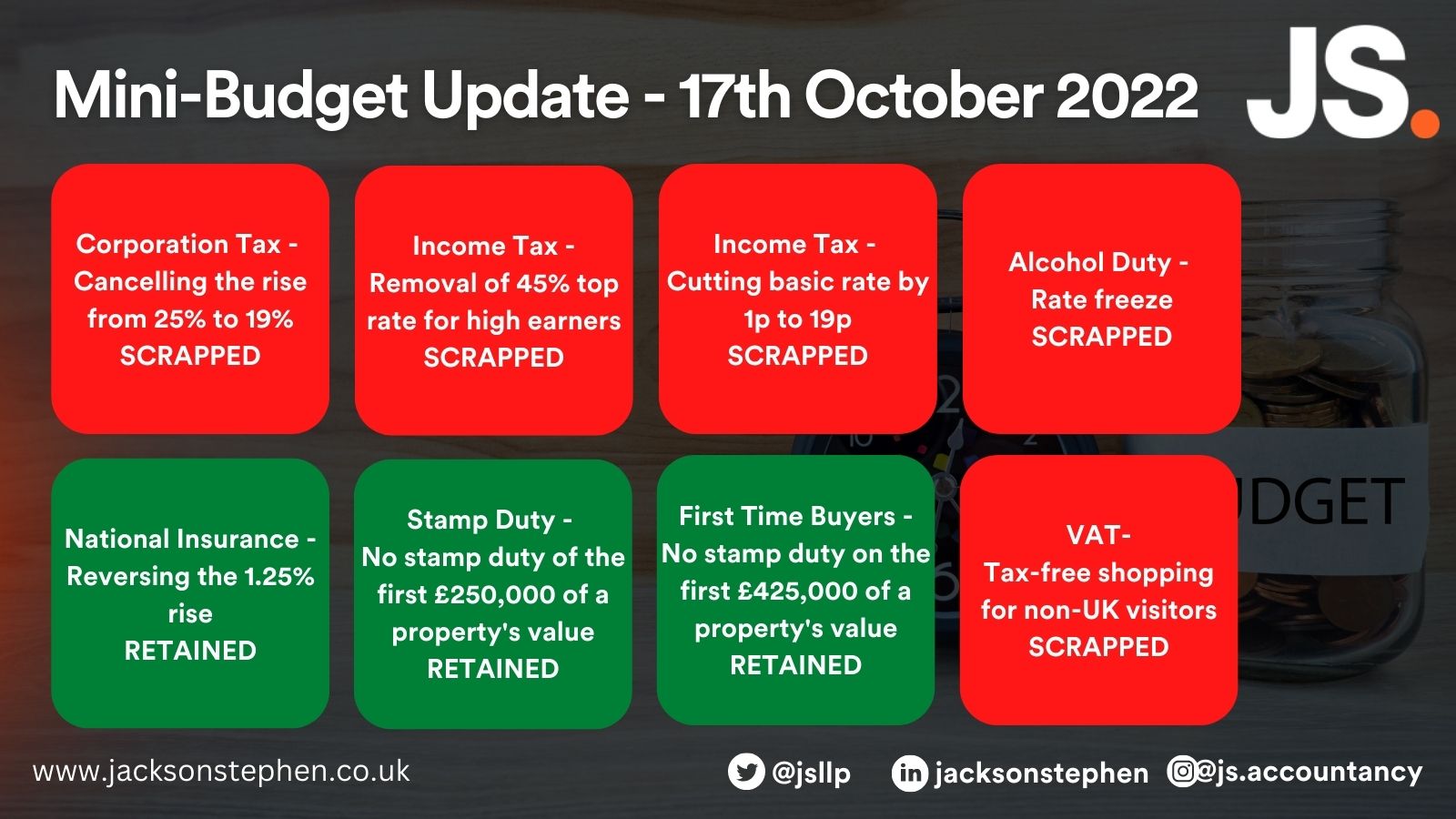
Headline Announcements from today's Emergency Statement
17 Oct, 20224 minutesOn Friday 14th October, Prime Minister, Liz Truss, announced a change of Chancellor, from K...

On Friday 14th October, Prime
Minister, Liz Truss, announced a change of Chancellor, from Kwasi Kwarteng to
Jeremy Hunt. This was swiftly followed by a series of U-turns, culminating in Mr.
Hunt delivering an ‘emergency statement’ today.
This emergency statement effectively replaces and re-writes the
mini-budget.
Designed to ensure the UK’s economic stability and provide confidence in the Government's commitment to fiscal discipline, the emergency statement confirmed:
- Income tax – the basic rate of income tax will remain at 20% until economic conditions allow for it to be cut. This had been due to drop to 19% from 6 April 2023.
- Income tax on dividends – will remain at the current rates of 8.75% in the basic rate band, 33.75% in the higher rate band, and 39.35% in the additional rate band. They had been due to each drop by 1.25 percentage points from 6 April 2023.
- Corporation tax - the increased corporation tax rates, already legislated to come in from 1 April 2023, will go ahead. These will take some companies from a 19% rate of corporation tax to 25% or 26.5%. It had been proposed that corporation tax would remain at a single 19% rate.
- IR35 – the off-payrolling rules, as introduced in 2017 and 2021, will remain into 2023/24 and beyond. This keeps the IR35 compliance burden with medium and large-sized employers.
- Energy Price Guarantee – the support for households to cap average annual electricity and gas costs at £2,500 will be reviewed in April 2023. We had been told that households would receive this support until September 2024.
- VAT – a VAT-free shopping scheme for non-UK visitors to Great Britain will no longer be pursued.
- Alcohol duties – will not be now frozen from 1 February 2023 and increased duties will apply.
It had already been
confirmed that the ‘additional rates’ of income tax for those earning more than
£150,000 a year, including the 45% rate on non-savings income, would remain in
2023/24.
The following mini-budget announcements remain:
- The 1.25% rise in NICs will still be reversed from 6 November and the government will not go ahead with the planned 1.25% levy to fund health and social care next year.
- The annual investment allowance will remain at £1 million from 1 April 2023, rather than reverting to £200,000.
- There are to be more than 40 new “investment zones” in England.
- The increased thresholds for Stamp Duty Land Tax in England and Northern Ireland, as implemented from 23 September, will remain in place.
- The Energy Bill Relief Scheme for Business will continue to be subject to a governmental review after 31 March 2023. The Chancellor has now said that any support for businesses will be targeted to those most affected and that the new approach will better incentivise energy efficiency.
On 31 October, Mr. Hunt will present an
update on the government’s medium-term fiscal plan, complete with Office for
Budget Responsibility forecasts. Further changes to fiscal policy are expected
to be announced at this time.


